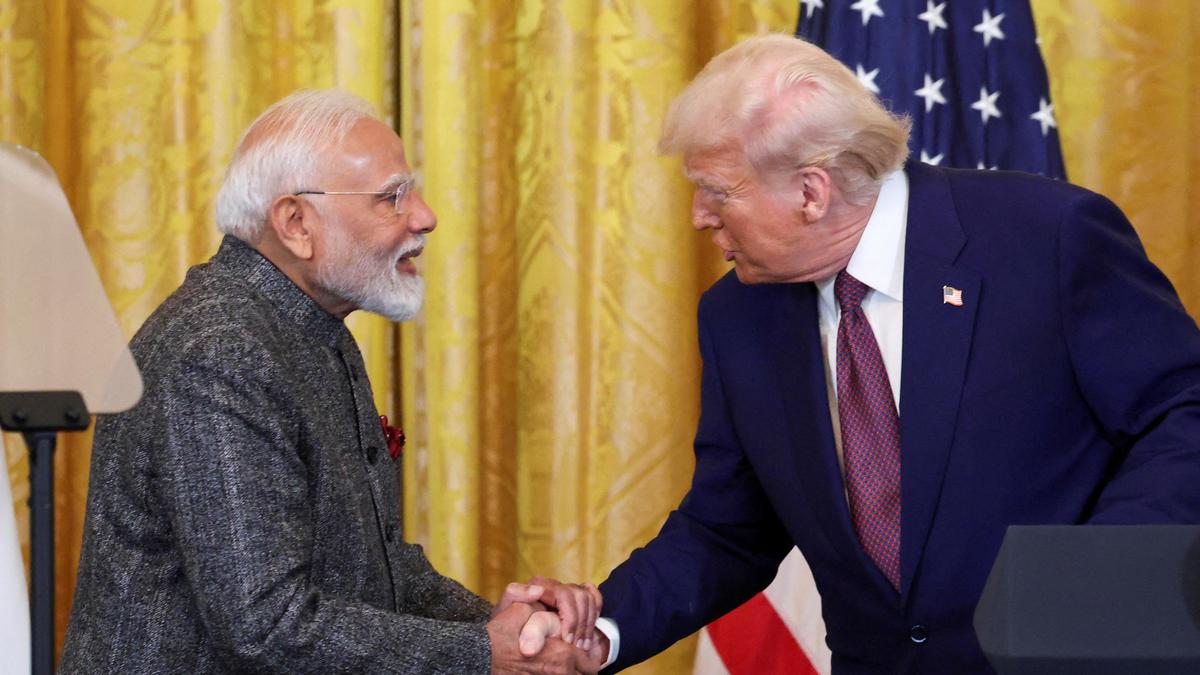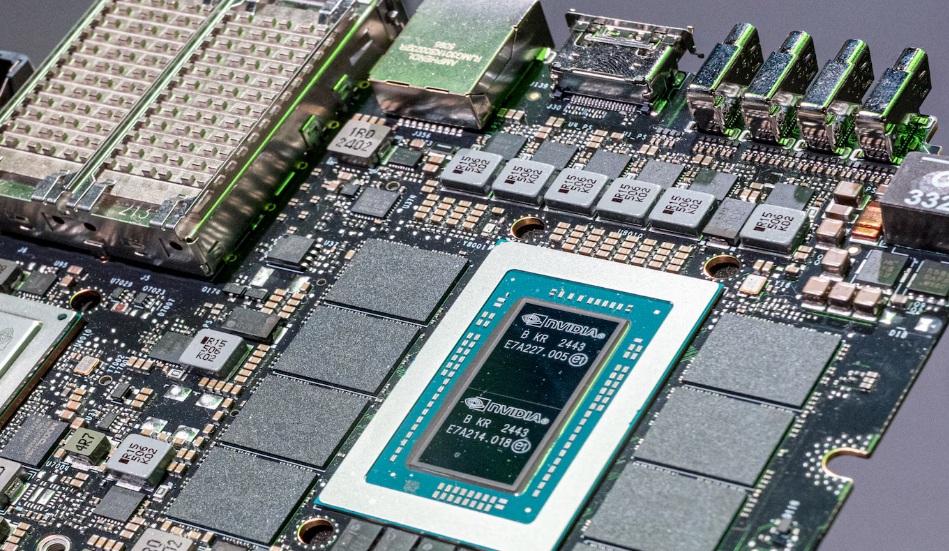What’s in today’s article?
- Why in news?
- What is Telecom Regulatory Authority of India (TRAI)?
- What is Telecommunications Dispute Settlement and Appellate Tribunal (TDSAT)?
- News Summary: TRAI can’t regulate OTT platforms
- In what context did TDSAT pass this order?
- Significance of this order
- Why is the IT Ministry disagreeing with DoT over OTT regulation?
- What is TRAI’s attempt at regulating OTT services?
Why in news?
- In a recent interim order, the Telecom Disputes Settlement and Appellate Tribunal (TDSAT) has clarified that OTT platforms are not subject to the jurisdiction of the Telecom Regulatory Authority of India (TRAI).
- Instead, they fall under the governance of the Information Technology Rules, 2021, overseen by the IT Ministry.
What is Telecom Regulatory Authority of India (TRAI)?
- The entry of private service providers brought with it the inevitable need for independent regulation.
- The Telecom Regulatory Authority of India (TRAI) was, thus, established by an Act of Parliament, called the Telecom Regulatory Authority of India Act, 1997.
- TRAI’s mission is to create and nurture conditions for growth of telecommunications in the country in a manner and at a pace which will enable India to play a leading role in emerging global information society.
- Objectives –
- To regulate telecom services, including fixation/revision of tariffs for telecom services which were earlier vested in the Central Government.
- One of the main objectives of TRAI is to provide a fair and transparent policy environment which promotes a level playing field and facilitates fair competition.
- In pursuance of above objective TRAI has issued from time to time a large number of regulations, orders and directives to deal with issues coming before it.
What is Telecommunications Dispute Settlement and Appellate Tribunal (TDSAT)?
- The TRAI Act was amended by an ordinance, establishing a Telecommunications Dispute Settlement and Appellate Tribunal (TDSAT) to take over the adjudicatory and disputes functions from TRAI.
- TDSAT was set up to adjudicate any dispute –
- Between a licensor and a licensee,
- Between two or more service providers,
- Between a service provider and a group of consumers, and
- To hear and dispose of appeals against any direction, decision or order of TRAI.
News Summary: TRAI can’t regulate OTT platforms
- In an interim order, the TDSAT said that OTT platforms are outside the purview of the TRAI Act since they do not require any permission or a licence from the central government.
In what context did TDSAT pass this order?
- TDSAT’s findings came in a petition filed by the All India Digital Cable Federation.
- The federation alleged that free streaming of matches of the ICC Cricket World Cup on mobile devices by Star India through its platform Disney+Hotstar is discriminatory t the cable TV industry under TRAI regulations.
- This is because, the matches can be watched on Star Sports TV channel only if the viewer has subscribed by making a monthly payment.
- The federation asked that:
- Star India should be restrained from permitting viewers to have Star Sports on their mobile phones for free, or
- they should also provide free access to Star Sports to AIDCF’s members, that is cable operators.
Significance of this order
- TDSAT’s rejection of the plea has broader implications in the ongoing debate over the regulation of OTT services.
- At the heart of the matter is the clash between the TRAI and the Ministry of Electronics and Information Technology (MeitY) over who should oversee these platforms.
- The had proposed a draft telecom Bill classifying OTT platforms as telecommunications services and seeking to regulate them like telecom operators.
- DoT works under the Union Ministry of Communications.
- TRAI, on the other hand, issued a consultation paper on regulating OTT platforms.
- This difference in approach has led to a contentious disagreement between two key government bodies.
- The had proposed a draft telecom Bill classifying OTT platforms as telecommunications services and seeking to regulate them like telecom operators.
Why is the IT Ministry disagreeing with DoT over OTT regulation?
- The IT Ministry believes that under the Allocation of Business Rules, Internet-based communications services are not part of DoT’s jurisdiction.
- However, in this case, the conversation is centred around OTT communications services like WhatsApp.
- Time and again, MeitY made it clear that the DoT can only regulate the carriage layer, that is telephony, wireless communications, and private sector licences, etc.
What is TRAI’s attempt at regulating OTT services?
- Earlier TRAI had recommended against creating a specific regulatory framework for OTT communication services like WhatsApp, Zoom, and Google Meet.
- In September 2020, TRAI had recommended against regulatory intervention for OTT platforms, saying that it should be left to market forces.
- Now, it has revisited its stance, and started consultations on how these services can be regulated.
- In the consultation paper released in June 2023, the regulator asked stakeholders to send suggestions about regulating services.
- It also asked whether a selective banning of OTT services could be done as opposed to entirely shutting down the Internet.
- Regulating such services has been a long-standing demand of telecom operators, who have been advocating for years for same service, same rules.
Q1) What is OTT?
OTT stands for “over the top”. It refers to any streaming service that delivers content through wireless internet. OTT bypasses traditional forms of media consumption, such as cable or set-top boxes.
Q2) What is Department of Telecommunications (DoT)?
The DoT is under the Ministry of Communications and Information Technology. It is headed by a secretary, who is a senior member of the Indian Administrative Services. The secretary of the DoT reports to the Union Minister for Communications and Information Technology.
Source: TRAI can’t regulate OTT platforms like Hotstar, says tribunal. This is why it matters | Department of Telecommunication
Last updated on February, 2026
→ UPSC Notification 2026 is now out on the official website at upsconline.nic.in.
→ UPSC IFoS Notification 2026 is now out on the official website at upsconline.nic.in.
→ UPSC Calendar 2026 has been released.
→ Check out the latest UPSC Syllabus 2026 here.
→ Join Vajiram & Ravi’s Interview Guidance Programme for expert help to crack your final UPSC stage.
→ UPSC Mains Result 2025 is now out.
→ UPSC Prelims 2026 will be conducted on 24th May, 2026 & UPSC Mains 2026 will be conducted on 21st August 2026.
→ The UPSC Selection Process is of 3 stages-Prelims, Mains and Interview.
→ Prepare effectively with Vajiram & Ravi’s UPSC Prelims Test Series 2026 featuring full-length mock tests, detailed solutions, and performance analysis.
→ Enroll in Vajiram & Ravi’s UPSC Mains Test Series 2026 for structured answer writing practice, expert evaluation, and exam-oriented feedback.
→ Join Vajiram & Ravi’s Best UPSC Mentorship Program for personalized guidance, strategy planning, and one-to-one support from experienced mentors.
→ UPSC Result 2024 is released with latest UPSC Marksheet 2024. Check Now!
→ UPSC Toppers List 2024 is released now. Shakti Dubey is UPSC AIR 1 2024 Topper.
→ Also check Best UPSC Coaching in India






















